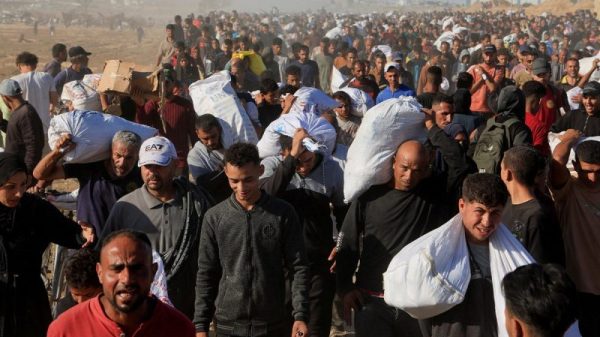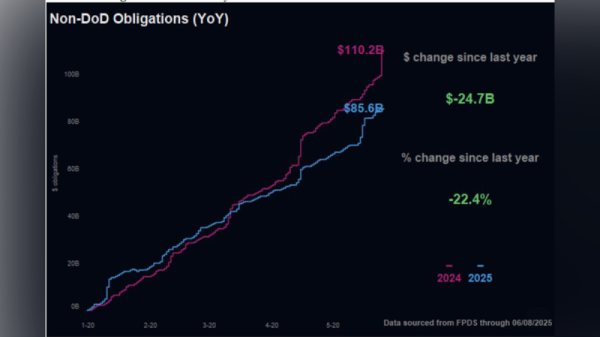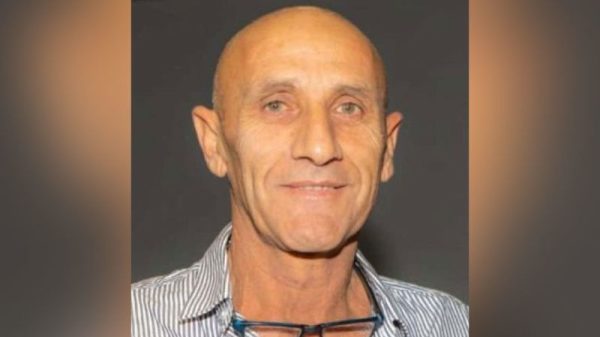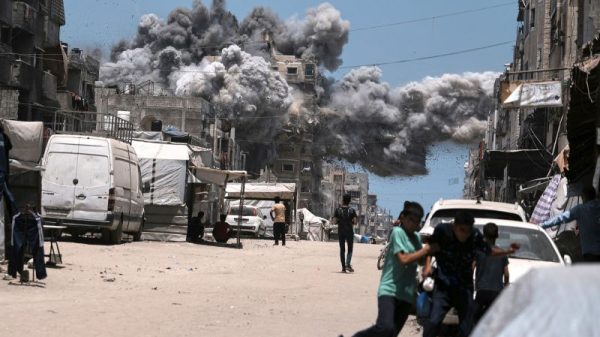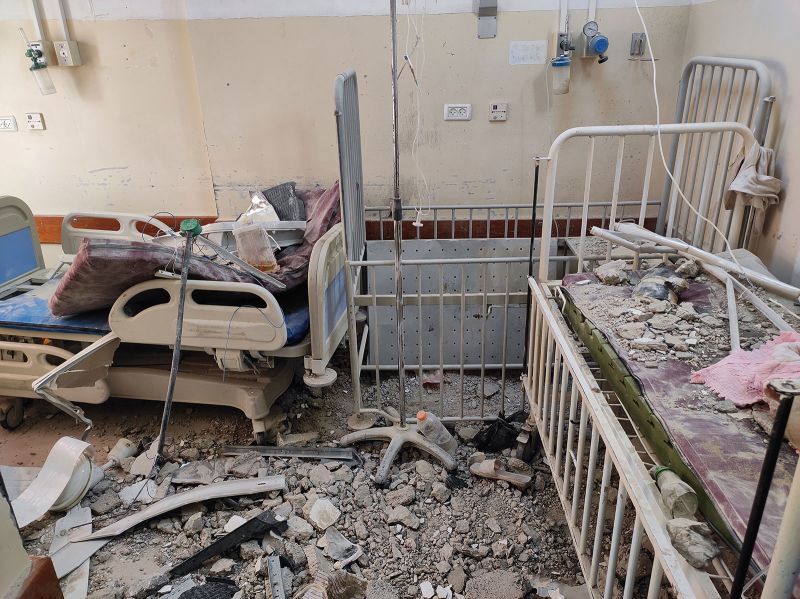A senior doctor in northern Gaza says that dozens of medical staffers at his hospital have been taken to an undisclosed location by the Israeli military, as the enclave’s wider healthcare system teeters on the edge of collapse.
The troops told all men between the ages of 16 and 65 to leave the building to be searched, he said.
More than 70 medical staff were “arrested and taken to an unknown area,” according to Abu-Safia, including hospital director, Dr. Ahmed Al-Kahlot. His claim was echoed in a statement by Gaza’s Hamas-controlled Health Ministry.
Asked about the arrests, the Israel Defense Forces said that it continues “to act against Hamas strongholds in the north of Gaza, among them the area of Beit Lahia.”
Kamal Adwan hospital is located in Gaza City, not Beit Lahia.
The statement added that the IDF is taking “all feasible precaution to mitigate harm to non-combatants, and is fighting against the Hamas terrorist organization, and not the civilians in Gaza or the medical teams operating there.”
‘Horrendous conditions’
Israeli actions in and around hospitals in Gaza have come under fierce criticism, as medical workers and NGOS warn that the health system in the territory is barely functional and cannot tolerate any more strain.
Last month, the Israeli army raided Gaza’s largest hospital, Al Shifa, in search of conclusive proof of the large-scale command and control center it had claimed was there, as doctors rushed to evacuate patients and dozens of newborn infants in need of incubators.
At Al-Rantisi children’s hospital, medical staff were also told to leave, as the IDF conducted operations inside; Israeli military officials later alleged that one room in the building’s basement was a Hamas armory, which had a handful of weapons and a chair with a rope next to it – a claim Gaza health officials denied.
Many medical centers serve as shelters for displaced Gazans seeking safety, in addition to caring for patients. But those seeking refuge in hospitals are finding that “this is just not the case,” Marie-Aure Perreaut, the emergency coordinator for Doctors Without Borders in the enclave.
While hospitals as a category are protected by international law, they may be viewed as legitimate military targets if found to be housing able-bodied combatants and weapons. The Israeli military has said it only carries out operations in and around hospitals where they are being used by Hamas and other armed groups.
According to Dr. Abu-Safia, he and just five other doctors were allowed to stay at Kamal Adwan Hospital to attend to patients in intensive care unit and premature babies.
“They asked us to gather in only one section or building [and] close all the doors and windows, and not to be near doors or windows,” he said.
But the care that the hospital’s remaining staff can offer patients too weak to be moved has been minimal, he said, “due to acute shortages of fuel, water, food, and medical supplies even before the siege.” Today the hospital has no water or power, he added, noting that doctors are “working with primitive flashlights to follow up on the patients left in the hospital.”
Across the besieged enclave, only 11 hospitals remain even partially functional, according to Richard Peeperkorn, the World Health Organization’s (WHO) representative in Gaza, in a press conference Tuesday.
“In just 66 days the health system has gone from 36 functional hospitals to 11 partially functional hospitals – so, one in the north and 10 in the south,” he said.
In the same day, WHO chief Tedros Adhanom Ghebreyesus said he was “extremely worried” about “reports of a raid at Kamal Adwan Hospital in #Gaza after several days of siege,” in a post on X, formerly known as Twitter.
Several hospitals in northern Gaza have ceased operations in recent weeks, saying they received orders from the Israeli military to evacuate. The Israeli military disputes issuing such an order.
Fuel shortages have forced several hospitals in Gaza to close, while others have shut down due to airstrike damage, according to the WHO.













